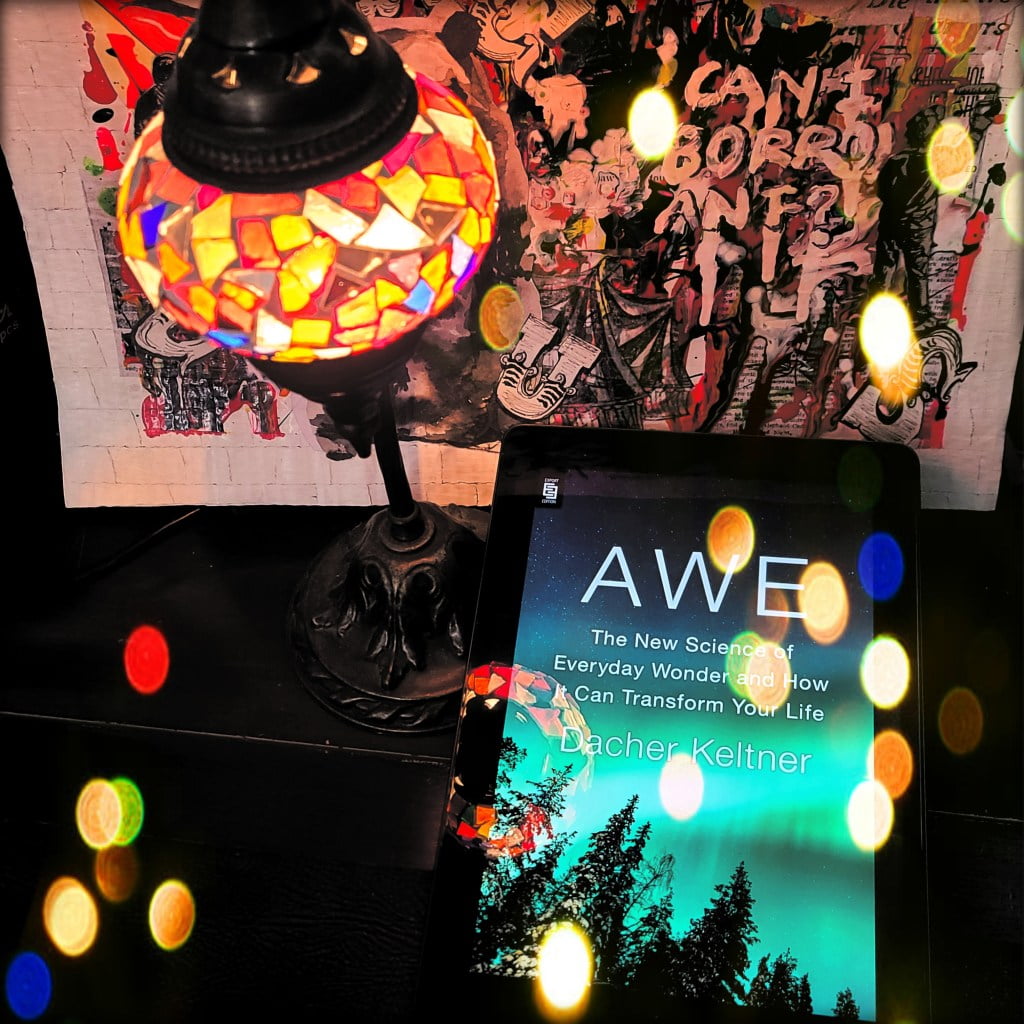
Dr Dacher Keltner’s book Awe is a fascinating and thought-provoking exploration of one of the most powerful emotions we can experience as human beings. Drawing on extensive research from psychology, neuroscience, and sociology, Keltner offers a compelling argument for why awe is so important to our lives, and how we can cultivate more of it daily.
Keltner is well known for defining emotions as the consultant for Pixar’s Inside Out movie. Hence he begins by defining awe as “the feeling of being in the presence of something vast that transcends your current understanding of the world.” He then goes on to discuss the different ways that awe can be triggered. This includes by natural phenomena, art, music, and other people. Therefore, he makes the case that awe is essential for our well-being, and that it can help us to connect with others, be more creative, and make better decisions.
“Awe is about knowing, sensing, seeing, and understanding fundamental truths, and leads to epiphanies across the eight wonders of life—transforming how we see the essential nature of the world.”
Dacher Keltner, Awe
Who is Dacher Keltner?
Dacher Keltner is a renowned social psychologist and a professor of psychology at the University of California, Berkeley. He is best known for his research on the science of emotion, social hierarchy, and the psychology of power. Keltner has published numerous articles and books, including "Born to Be Good: The Science of a Meaningful Life," "The Power Paradox: How We Gain and Lose Influence," and "The Compassionate Instinct: The Science of Human Goodness." He is also the co-director of the Greater Good Science Center at UC Berkeley, which focuses on the scientific study of positive emotions, social connections, and prosocial behaviour.
He argues that experiencing awe can help to reduce stress and anxiety, increase feelings of social connectedness, and even boost our immune systems. He also makes a convincing case that awe can help to foster moral and ethical behaviour. As a result he encourages us to act more compassionately and altruistically towards others.
In an experiment, Keltner took students from under-resourced high schools and veterans camping. He said: “Growing up in poverty, like these teens did, leads to elevated stress, a greater likelihood of anxiety and depression, and chronic inflammation.” A week after the trip, both teens and veterans is said to have felt less stress. He added: “They reported greater well-being. The teens reported better relations with friends and family. Veterans showed a 32 percent drop in the feelings and symptoms associated with PTSD.”
Not to mention, Keltner shows us just how pervasive awe is in our lives, even if we don’t always recognise it. From the grandeur of natural landscapes to the beauty of art and music, from moments of deep connection with others to experiences of profound spiritual insight, awe is all around us if we know where to look for it.

Throughout the book, Keltner offers plenty of practical advice for how we can cultivate more awe in our lives. There are many ways we can open ourselves up to this transformative power.
He also cites studies that have shown that awe can increase our generosity, our sense of connection, and our willingness to help. He also discusses how awe can improve our creativity and problem-solving skills.
Anthropologically minded psychologist Alan Fiske proposed that we tear up when witnessing acts of “communal sharing”. This is a way humans relate to one another grounded in the sense of interdependence, caring and sharing. It is a sense of common humanity. In relation to this, Keltner said: “So vital is this way of relating in our collective life that when we witness acts of communal sharing—a stranger’s generosity, one person soothing another, or two athletic adversaries embracing—tears well up in our eyes.”
Key takeaways from Dacher Keltner’s book Awe:
- Awe is a positive emotion that can broaden our perception of the world. It also increases our sense of connectedness with others.
- Awe experiences can have physical effects on the body. This includes a decrease in inflammation and an increase in vagal tone. The effects are often is associated with improved physical and emotional health.
- Awe can be cultivated through intentional practices such as mindfulness, gratitude, and exposure to nature.
- Awe experiences can be a source of inspiration for creativity, altruism, and social activism.
- Awe can help us to transcend our individual concerns and connect with something larger than ourselves. This can be seen through a sense of wonder, beauty, or spirituality
Overall, “Awe” is thought-provoking as it looks into the science of this wondrous emotion. It shows us the power of nature, and the pursuit of a more fulfilling and meaningful life – if we only look for it. In the meantime, check out the episode with The Little Book of Wonder author Bernadette Russell.
[…] 📚 Awe by Dacher Keltner. “Awe is the feeling of being in the presence of something vast that transcends your understanding of the world,” said Keltner. Read the review on Dacher Keltner’s book Awe. […]
[…] Dacher Keltner’s book Awe: a crucial reminder to never stop looking – review […]